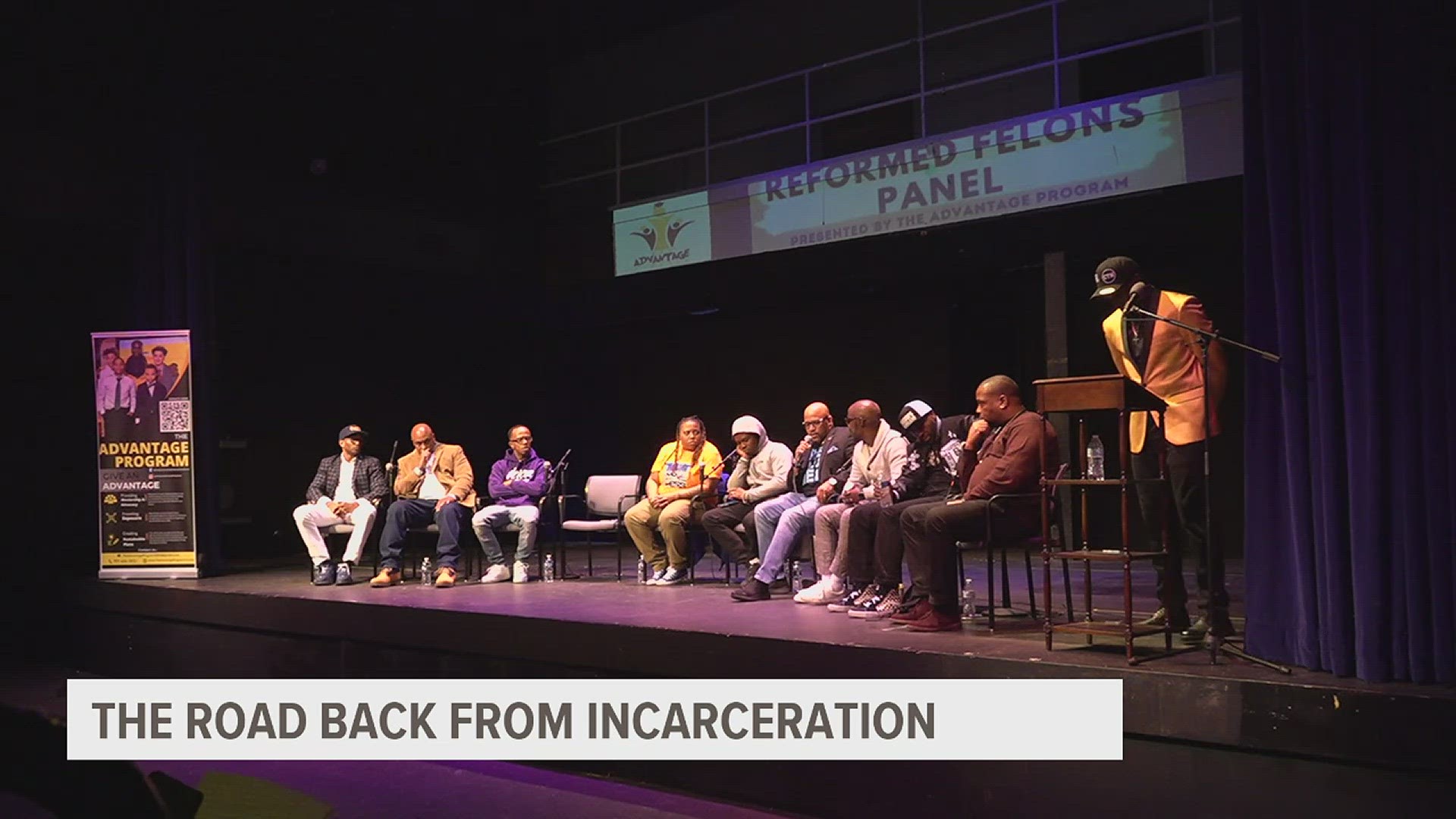YORK, Pa. — The United States incarcerates more of its own citizens on average than any industrialized country in the world.
A March report from the Prison Policy Initiative shows almost 2 million Americans are behind bars today -- that's 565 people for every 100,000.
A group of people who were formerly incarcerated gathered in York on Saturday, hoping to change those numbers by changing attitudes. Ten reformed felons under the lights inside the DreamWrights Center for Community Arts met with a common goal.
"Showing people what true transformation after incarceration looks like," said Jonathan Queen, founder the president of New Mindz Ministries Inc.
The hours-long panel discussion organized by The Advantage Program invited speakers from the criminal justice system, including York County Assistant District Attorney Stephanie Lombardo, to stand alongside men and women who served time. Some addressed the reasons they ended up there.
"All the trauma that was going on in my home, the streets became my family," said Tiff Lowe, who is now a gun violence intervention professional.
"People think it's cool selling drugs and shooting guns and all of that nonsense," said Casper Hill, owner of Team Success Publications. We tell ourselves in the inner city some of the wrong stuff. We have to change that mindset, change that narrative."
Panelists said the road to success isn't easy.
"When you look at Pennsylvania specifically, people that go to jail come home and recidivate at a 67% rate. Basically, if you're sitting in a row of ten people, only three of you guys will successfully reenter society," said Tavon Parker, CEO of The Advantage Program.
Their goal is to show others there is hope.
"I was incarcerated in Virginia, given a life sentence, served 26 years on it, still on parole. My parole date does not end until 2592," said Alexander Campbell, who's now a mentor. "I love the darkness. I will find you in the darkness and bring you back if you're willing to fight."
Standing up as role models, they hope to build a stronger community; one that props up those who have fallen instead of turning them away.
"We want you to come back home and we want you to be something special when you come back home," Campbell said.
"You start remembering that you met someone individuals who went through that hell and changed their lives," Queen added. "Have a new mindset so that you would treat them a little bit differently instead of just saying, 'yeah lock 'em up for a while.'"

